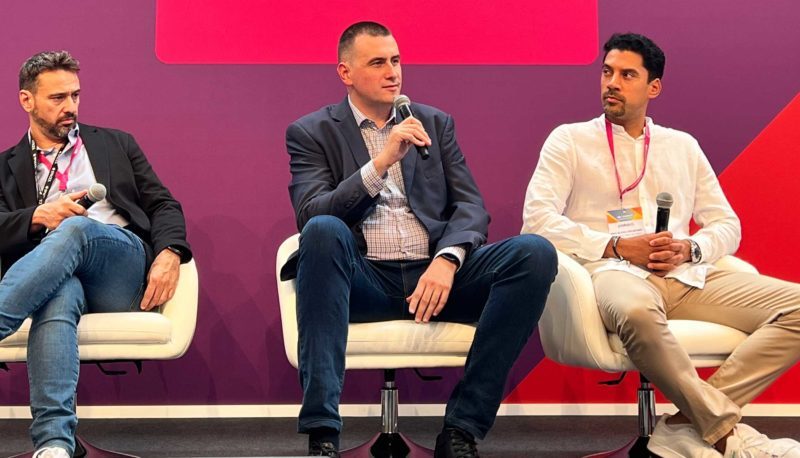SB22, a Dallas-headquartered technology firm, aims to be a ‘disruptive force in the sports entertainment history’. From the company’s homepage, it’s ‘the creator of the first fully immersive betting and transactional platform that does not rely on any legacy technology’. At SBC Barcelona, SB22 took to the stage to announce VR22, reportedly the first ever ‘virtual reality betting platform’ that offers as immersive an experience as possible.
What exactly is VR22, and how is it likely to disrupt the industry?
Introducing: VR22

As a direct fusion between the metaverse and traditional sports betting, industry experts quickly jumped on the concept of VR22. In a statement, Keith Wall, the VP of Sports Commercial at FanDuel, said:
‘SB22’s VR application is truly immersive and allows fans to experience and wager on games in a highly innovative way.’
At the core of the VR22 project is a ‘360-degree live game streaming platform’ that boasts intuitive, immersive betting capabilities. It’s a solution that, in the words of SB22, can be tailored for both real-money gambling and free-to-play activities, both of which will use SB22’s ‘proprietary transactional platform’. This is essentially a next-generation betting innovation that seeks to connect forward-thinking gamblers with a digital world that can very easily include technologies like NFTs.
In a statement issued by Marko Savkovic, the CTO of SB22, the project was given high praise:
‘Combining our previous experience with enterprise and consumer VR as well as sports betting, we have made a unique, immersive platform. With this game-changing experience, fans can interact in ways they have never been able to before. We are excited to be able to shape the future of the industry with VR22.’
How Would VR22 Work?
Reportedly, the VR22 technology would digitally place fans right at the heart of the action. They’d be able to immerse themselves in a virtual environment that would put them right in the middle of the game that they’re betting on. Ultimately, the key goal is to empower bettors to interact directly with these games in real time, placing wagers, participating in contests, and potentially unlocking NFTs and other benefits as they go.
It’s quite a bold project, but if successful, it would present a technologically-focused alternative to attending an in-person sporting event. With a brief explanation, SB22 highlighted the potential of VR22:
‘The VR22 interactive experience is simple and intuitive, using hand-tracking tools and generating system-generated personalised promotions and retention offers using Machine Learning and Artificial Intelligence capabilities. The product is geared towards sports betting operators, leagues, and professional sports teams, but the potential application of this tech extends far beyond these verticals.’
As the metaverse becomes a more popular and fleshed-out concept (and reality), technology such as VR22 will likely be a driving force in terms of generation adoption.






